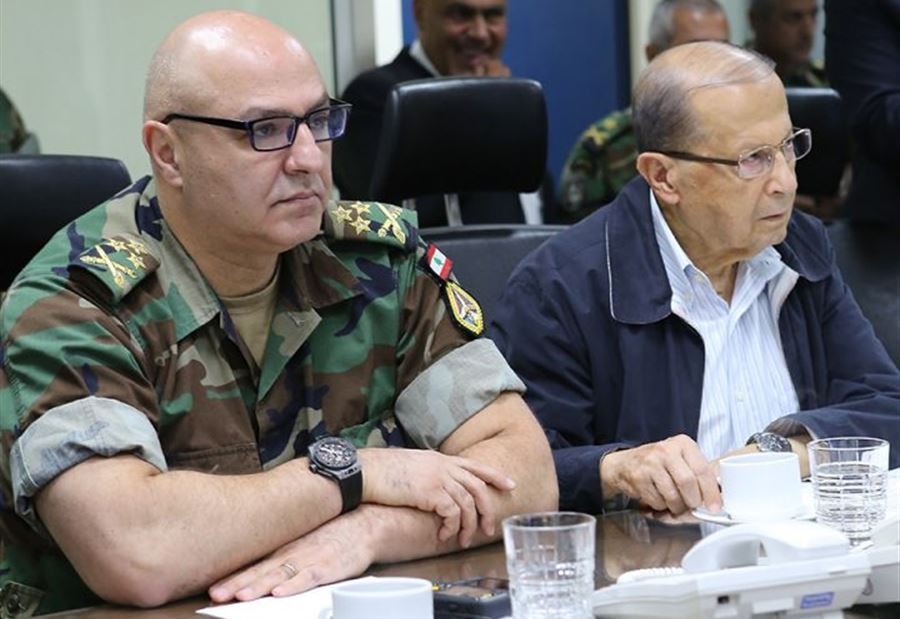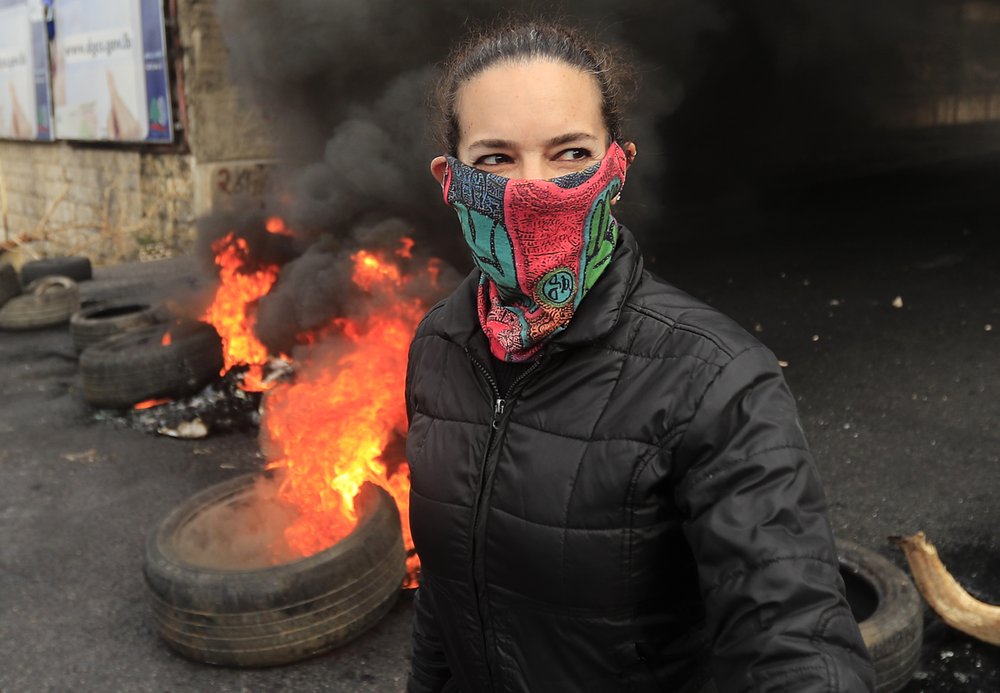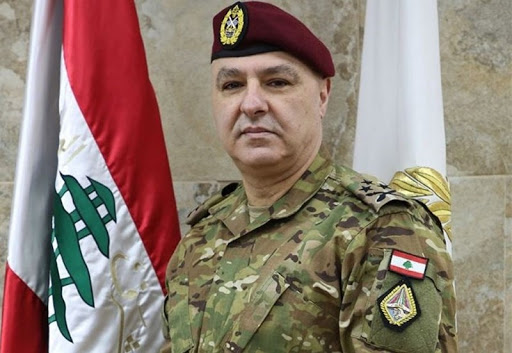By BASSEM MROUE
BEIRUT (AP) — Lebanon’s army chief warned Monday that soldiers are hurting from the severe economic crisis engulfing the country, voicing rare criticism from the military of a ruling class that has done little to try and resolve a monthslong political deadlock.
Gen. Joseph Aoun’s comments came as protesters, angry with Lebanon’s political class, blocked major roads leading to the capital for the seventh straight day. They caused traffic jams and prompted the head of the country’s hospital union to warn they were preventing oxygen supplies from reaching medical centers treating coronavirus patients.
The protests come against the backdrop of a crash in the local currency, an increase of consumer goods prices and political bickering between rival groups that has delayed the formation of a new government. Lebanon’s currency has lost 85% of its value in the past year and a half.
In a rare statement, Aoun said the financial and economic crisis is hurting soldiers whose salaries have lost value, adding that “members of the military are suffering and getting hungry like the rest of the people.”
In unprecedent criticism of the political class, which is doing little to move the country out of the crisis, the general said: “We have warned more than once about the dangers of the situation and how things might blow up.”
Aoun referred to budget cuts to the army over the past few years but also vowed the army would protect civil peace and prevent acts of sabotage against public or private property.
“They don’t care about the army or the suffering of members of the military,” he said.
Before the currency crash, an enlisted soldier earned the equivalent of about $700 a month but that has dropped to about $100 per month. Officers receive higher salaries but currently make no more than $400 a month.
Earlier on Monday, President Michel Aoun, who is from the same family but not closely related to the general, blasted the road closures calling them “organized acts of sabotage that aim to undermine stability.” His comments came during a meeting attended by heads of the country’s security agencies and economic and financial officials.
Troops are hungry too

But the army chief berated Lebanon’s sectarian-based politicians for their handling of the crisis, warning of an unstable security situation.
“The soldier also is suffering and is hungry, to the officials I say, where are you going? What are you waiting for? What are you planning to do?” he said in a statement, urging them to find long-lasting solutions to stop the country’s financial meltdown.
One political source said tension between the president and army commander grew after the request to clear roads.
General Aoun on Monday warned against pulling the army into political bickering.
“The fragmentation of the army means the end of the entity, this is impossible to let happen. The army is holding together and the experience of ’75 will not be repeated,” he said.
The army has long been billed as a rare institution of national pride and unity. Its collapse at the start of Lebanon’s 1975-1990 civil war, when it split along sectarian lines, catalyzed Lebanon’s descent into militia rule.
The army and police “should fully perform their duties and implement the law without hesitation,” he said. His comments sparked concerns of a potential crackdown against the protesters to force them to open the roads. But by nightfall, many roads were still blocked.
Starting in the early morning hours, small groups of demonstrators blocked the southern, northern and eastern entrances to Beirut with burning tires and parked vehicles. In other parts of Lebanon, soldiers briefly opened some roads only to have protesters close them again shortly afterward.

In the southern village of Abbasiyeh, a man poured gasoline on his body and tried to set himself on fire before civil defense members and soldiers intervened and sprayed his body with water.
Tens of thousands have lost their jobs over the past year as the economic crisis, the worst in Lebanon’s modern history, was made worse by the spread of the coronavirus. According to the World Bank, the crisis is expected to drag more than half of Lebanon’s population into poverty.
Sleiman Haroun, President of the Syndicate of Hospitals in Lebanon, told The Associated Press that after a two-day weekend when there is no oxygen distribution, some hospitals are running low and urgently need supplies, especially to treat COVID-19 patients.
“This is not a joke. It is a matter of life and death,” Haroun said urging protesters to allow vehicles carrying supplies of oxygen to pass. There are several oxygen plants around Lebanon and they supply hospitals throughout the country, including some in remote areas.
Despite a weekslong lockdown in Lebanon, cases of coronavirus remain high in the tiny country, with 2,377 new cases registered on Sunday, raising the total cases since February last year to more than 395,000. The virus has also killed 5,047 people, including 33 on Sunday.
On Saturday, Lebanon’s caretaker Prime Minister Hassan Diab warned that the country was quickly headed toward chaos and appealed to politicians to put aside their differences in order to form a new government that can attract desperately needed foreign assistance.
In October, former Prime Minister Saad Hariri was named to form a new Cabinet but five months later, disagreements between him and President Michel Aoun on the shape of the Cabinet has stood in the way of a new government’s formation.
The local currency hit a record law against the U.S. dollar on Saturday getting to close to 11,000 pounds on the black market.
Lebanon has been hit by one crisis after another, starting with nationwide protests in October 2019 that revealed a severe financial and economic crisis. The situation was made worse by coronavirus and a massive blast at Beirut’s port in August that killed 211, wounded more than 6,000 and damaged large parts of Beirut.


Leave a Reply
You must be logged in to post a comment.